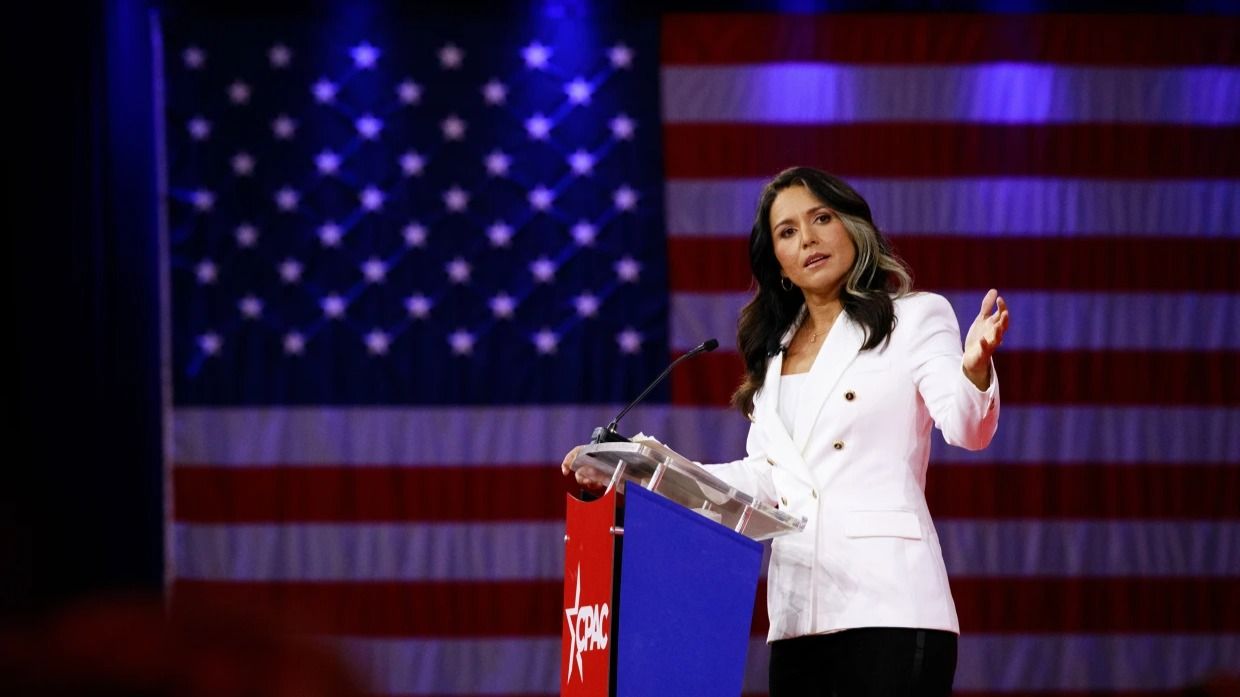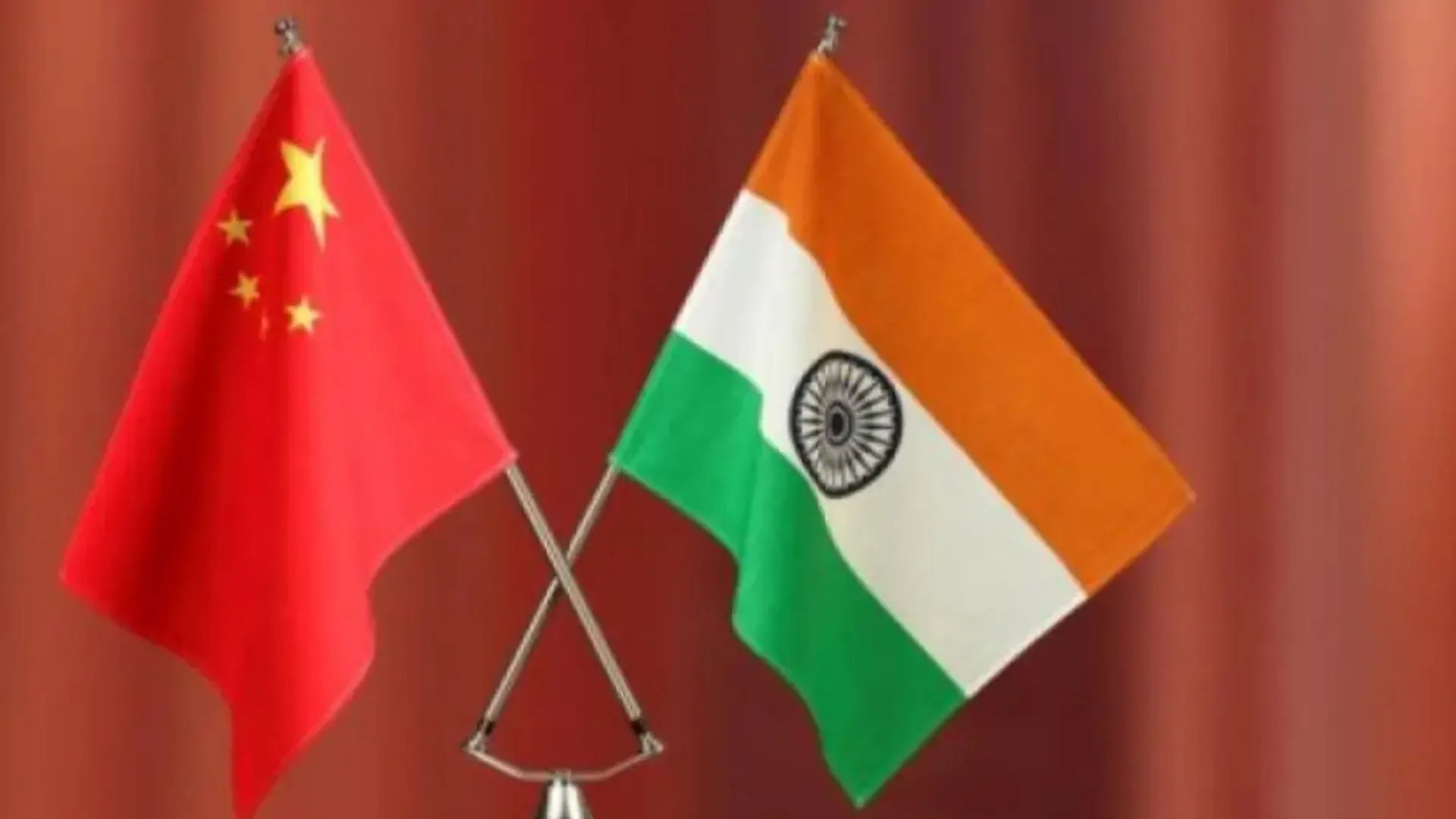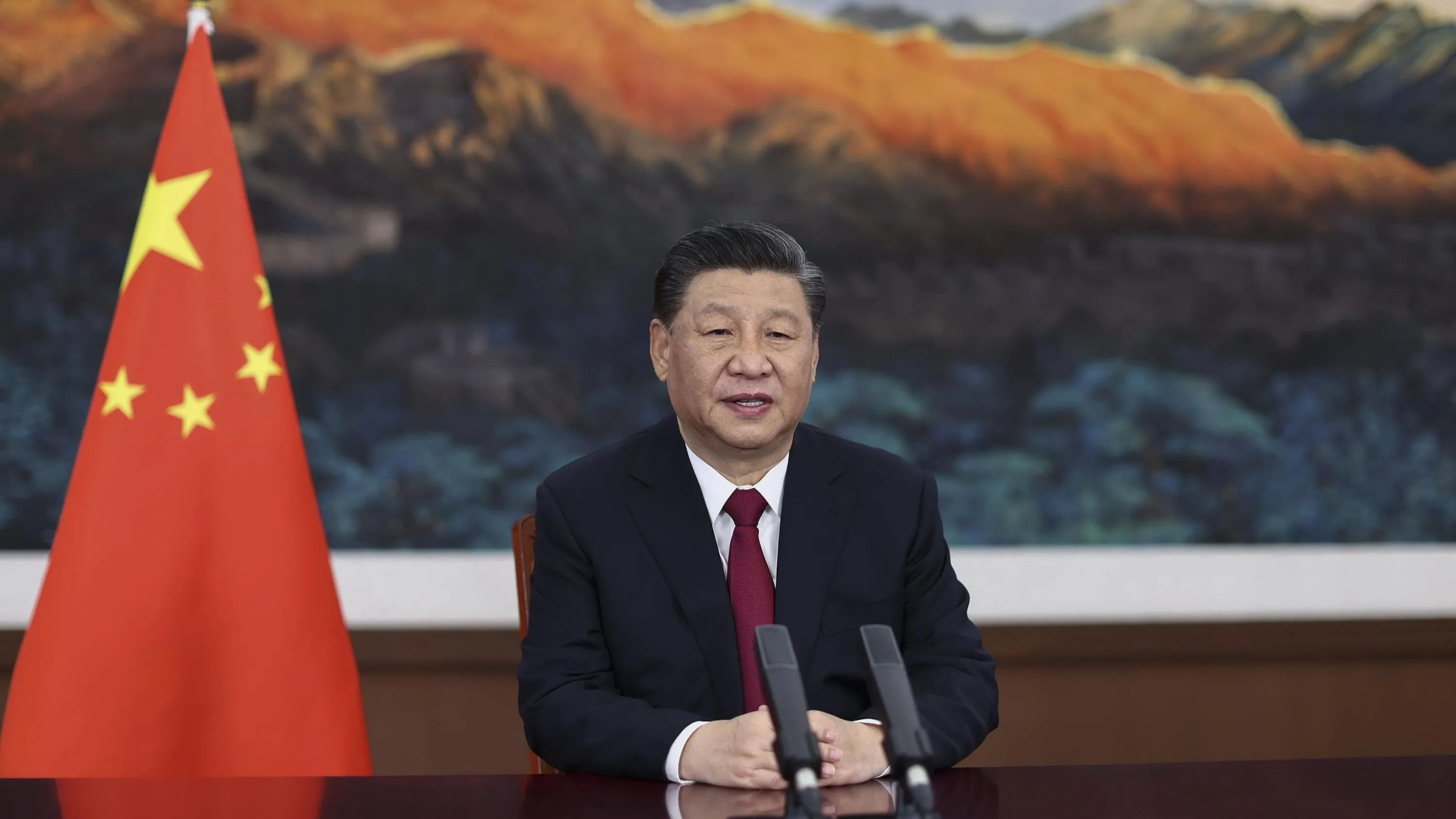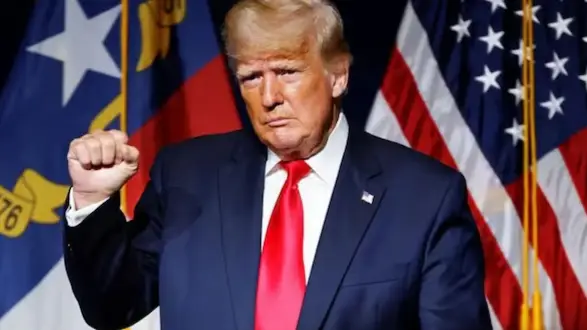Yesterday, in a significant new appointment, President-elect Donald Trump nominated former Congresswoman Tulsi Gabbard as his choice for Director of National Intelligence. As Director of National Intelligence she’ll be responsible for heading all of US’ intelligence agencies. A former Democratic lawmaker who has since crossed the aisle, Gabbard’s rise to political prominence is notable for several reasons, not the least of which is her background as a Hindu American and her outspoken stance on numerous issues that have brought her attention — and controversy — across the political spectrum.
Gabbard’s Background and Military Service
Born in American Samoa and raised in Hawaii, Gabbard made history in 2002 as the youngest person ever elected to Hawaii’s House of Representatives at just 21 years old. Shortly after, she enlisted in the Hawaii Army National Guard, and in 2004, she left public office for a 12-month deployment in Iraq with a field medical unit. Following her return, she rose in the ranks, going on to serve in Kuwait in 2009 as a military police platoon leader and trainer for counterterrorism operations. She currently holds the rank of lieutenant colonel.
1st Hindu American Lawmaker on Capitol Hill
When she was elected to the U.S. House of Representatives in 2012, Gabbard became the first Hindu American in Congress, taking her oath of office on the Bhagavad Gita. Her election was celebrated by many as a step forward for Hindus in American politics. She also broke ground as the first practicing Hindu to reach such a position of influence in the United States, advocating for religious tolerance and calling attention to the diversity of beliefs in American society.
Tulsi isn’t an Indian American
However, unlike some might assume based on her religious identity, Gabbard is not of Indian descent. Her Hindu faith is rooted in her upbringing rather than ancestry. Tulsi’s mother, Carol Porter Gabbard accepted Hinduism and raised all her children as Hindus. Tulsi, in many interviews, has stated that she subscribes to the Gaudiya Vaishnav school of Hinduism, which originated in Bengal. In the 60s, Srila Prabhubad played a pivotal role in preaching its message to people around the world.
Congress and Clashes with the Democratic Party
In the US Congress, Gabbard quickly established herself as an independent-minded Democrat, challenging party positions and defying leadership on key votes. As a Democrat, she criticized Barrack Obama for refusing to acknowledge the threat posed by radical Islam.
She notably broke from the majority of her party by voting “present” on Donald Trump’s impeachment in 2019, saying she could not support a partisan process. In other instances, she joined Republicans in supporting more stringent “extreme vetting” for Iraqi and Syrian refugees entering the U.S. Gabbard’s willingness to cross party lines earned her respect from some quarters and sharp criticism from others, especially within her own party.
Despite her outsider status in Congress, Gabbard also earned her party’s respect early on, being elected vice chair of the Democratic National Committee (DNC) in 2013. However, her outspoken stances and maverick approach eventually strained her relationship with the Democratic establishment.
Controversial Meetings in Syria and Foreign Policy Stances
Perhaps one of the most divisive moments in her career was Gabbard’s 2017 trip to Syria, where she met with President Bashar al-Assad, whose regime has been accused of human rights abuses, including chemical attacks against civilians. Gabbard defended the meeting as a “fact-finding mission,” though the bipartisan backlash was swift and widespread. She later commented on MSNBC that Assad was “not the enemy of the United States because Syria does not pose a direct threat to the United States,” a remark that underscored her strong opposition to U.S.-backed interventions in the Middle East.
A Shift to the Right
Gabbard’s increasingly critical view of the Democratic Party ultimately led to her exit from the party. After an unsuccessful bid for the 2020 Democratic presidential nomination, she announced her departure from the party, condemning it as an “elitist cabal of warmongers driven by cowardly wokeness.”
She accused Democratic leaders of “anti-white racism” and “radicalizing every issue,” statements that aligned her more closely with conservative media and political circles.
This October, Gabbard officially joined the Republican Party. Since her shift, she has emerged as a favored voice on Fox News and other conservative platforms, often voicing her critiques of “identity politics” and “radical liberalism.”
It is worth adding, that even when she was a Democrat, many conservative commentators, such a Tucker Carlson, who was on Fox News at that time, respected her.
Trump’s Bold Choice for Intelligence Chief
Trump’s choice of Gabbard as his nominee for director of national intelligence is a significant development. If confirmed, Gabbard would oversee the United States’ intelligence apparatus, including agencies such as the CIA and FBI, with a combined budget of $76 billion. Her nomination was met with sharp criticism from many Democrats, who argue she lacks direct experience in intelligence and remains controversial for her foreign policy views and stance on Assad.
In response, Trump has doubled down, saying, “We will clean out all of the corrupt actors in our national security and intelligence apparatus, and there are plenty of them,” signaling a willingness to disrupt the intelligence community.
No, Tulsi Gabbard Isn’t Indian American — But She Is a Hindu American Making Waves in US Politics world-news World News | Latest International News | Global World News | World Breaking Headlines Today




